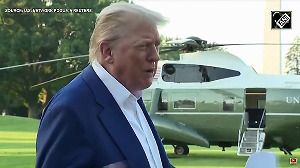Multinational pharmaceutical firms planning to introduce patent-protected medicines in the domestic market may find it difficult to price their products at will.
A government committee is looking at going beyond mere economic considerations and recommend an essentiality-linked pricing structure, it is learnt.
The move may upset the industry's plans as it favours the system of reference pricing under which the Indian prices will be an average of the prices at which the multinational firms sell the same product in developing nations with similar economic level or purchasing capacities.
Experts have already warned against such a system and advocated the need to consider the "essentiality" factor.
According to the experts who were part of a recent conference organised by the National Pharmaceutical Pricing Authority, reference price system may not truly reflect the purchasing power of the patients of that country.
They caution about the possibility of the companies putting high maximum retail price even in low-income countries with country-specific agreements to sell the medicine at discounted rates.
"I would not support a reference pricing system where you pick up the prices of five countries on the same economic level and arrive at an average price. These prices may not be indicative of the actual purchasing capacity of the patients of that country," said Richard Laing, medical officer (policy, access and rational use), World Health Organisation.
"There are several methods to fix the prices of medicines. All OECD (Organisation for Economic Cooperation and Development) countries, except the US, regulate patented medicine prices. The Australian model, where a Pharmaceutical Benefits Advisory Committee (PBAC) evaluates the merit of each new medication before assigning it a price, perhaps has much to offer. While marketing approval for the drug is given by the drug regulator, the prices of the medicines are recommended by the PBAC," Laing added.
According to experts, Germany is another country where prices of patented medicines are decided on the basis of the therapeutic importance of the medicine.
"This is hugely unpopular with the industry as many new drugs do have effective alternatives in that country and the authority may not approve high prices for such medicines," said an expert.
The official committee, set up by the Department of Chemicals and Petrochemicals, is in the process of identifying the best model for the country. The committee, which has gone through the price regulatory systems in countries like Germany, Canada and South Africa, is scheduled to meet on April 29.
The timing of the meeting is also significant as an inter-ministerial committee headed by Agriculture Minister Sharad Pawar is expected to take a final view on the new national pharma policy, which includes a suggestion for a price control mechanism for patented medicines.






